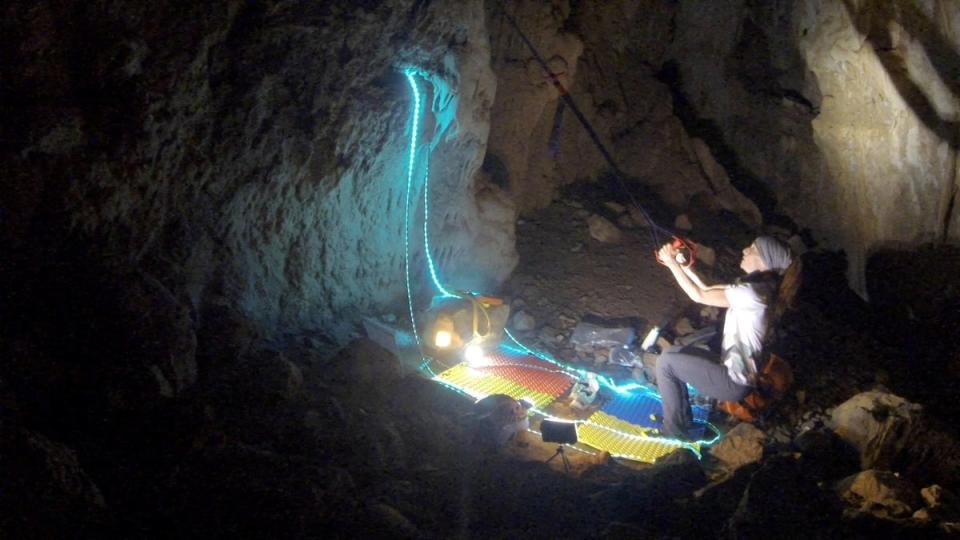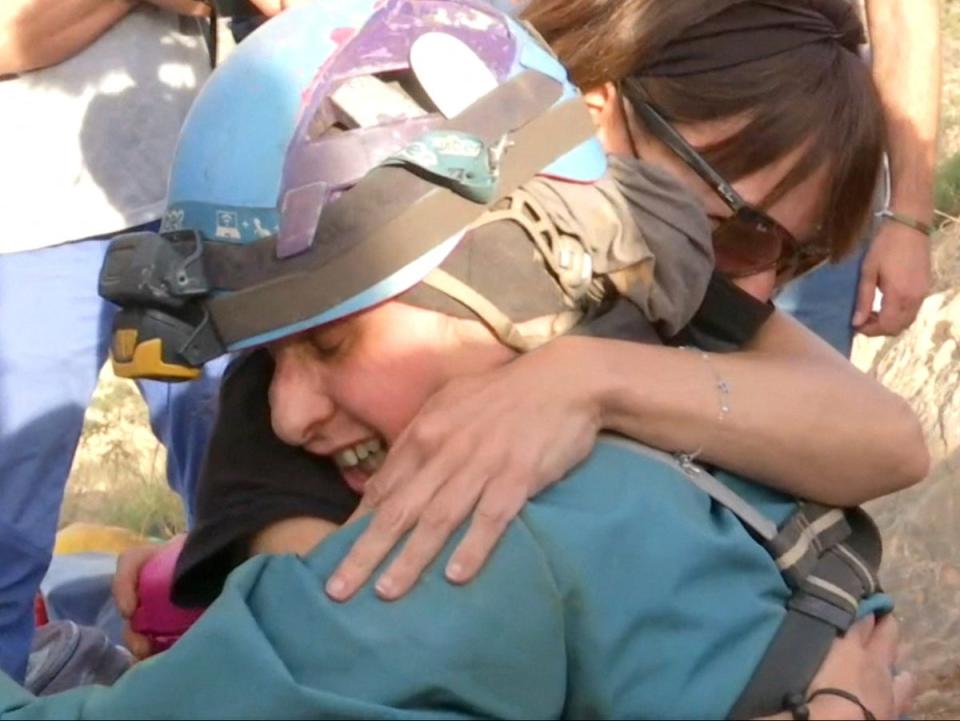Spanish woman leaves cave after 500 days in total isolation OLD
An extreme athlete emerged on Friday from a cave 230 feet underground where she spent 500 days isolated from the outside world in what could be a new world record.
Beatriz Flamini, 50, left the cave in southern Spain where she had been since 21 November, 2021 – and immediately went for a shower.
The elite sportswoman, mountaineer and climber, had been monitored by scientists in an project called Timewave to learn more about the capacities of the human mind and circadian rhythms.
She was 48 when she went into the cave, and celebrated two birthdays alone underground.
Blinking and smiling as she embraced well-wishers, her first words included asking who would be paying for a celebratory round of beers.
She described the experience of being cut off from the world as “excellent, unbeatable.”
“I’ve been silent for a year and a half, not talking to anyone but myself,” she said.

Ms Flamini spent her time underground doing exercises to keep fit, painting and drawing and knitting woolly hats. She took two GoPro cameras to document her time, and got through 60 books and 1,000 litres of water, according to her support team.
“Caves are quite secure places, but very hostile to the human being and the brain because you don’t see the light of day, you don’t know how time is passing, you don’t have neurological stimulation,” she said.
“It’s not that the time passes more quickly or more slowly, simply that it doesn’t pass, because it’s always four in the morning.”
Her experience was being used by scientists at the universities of Granada and Almeria and a Madrid-based sleep clinic studying the impact of social isolation and extreme temporary disorientation on perception of time and the impact on sleep.
Ms Flamini was monitored by a group of psychologists, researchers, speleologists – specialists in the study of caves – and physical trainers who watched her every move and monitored her physical and mental wellbeing, though they never made contact.
Spanish state news agency Efe said Ms Flamini was obliged to temporarily halt the challenge after about 300 days and spend eight days in a tent because of a technical problem, but had no contact with anyone before going back down.
The Guinness Book of Records website awards the “longest time survived trapped underground” to the 33 Chilean and Bolivian miners who spent 69 days stuck 2,257 ft underground after the collapse of the San Jose copper-gold mine in Chile in 2010.

A spokesperson was not able to immediately confirm whether there was a separate record for voluntary time living in a cave and whether Flamini had broken it.
In 1987, Italian Maurizio Montalbini set a world record by spending 210 days in a cave. It has been reported that a Serb spent more than 460 days underground in 2016.
At a press conference later, Ms Flamini said she felt she was still living in the day she went down in 2021 and had no idea what had gone on in the world since, including Russia’s war in Ukraine and the Queen’s death.
With no sense of time, she said she stopped trying to count days and at no point tried to give up, even during an invasion of flies that she described as the source of her worst memories.
She apologised for stumbling over her answers to questions. “I’ve been a year and a half without talking and I find it difficult,” she said.
Reuters and Associated Press contributed to this report

